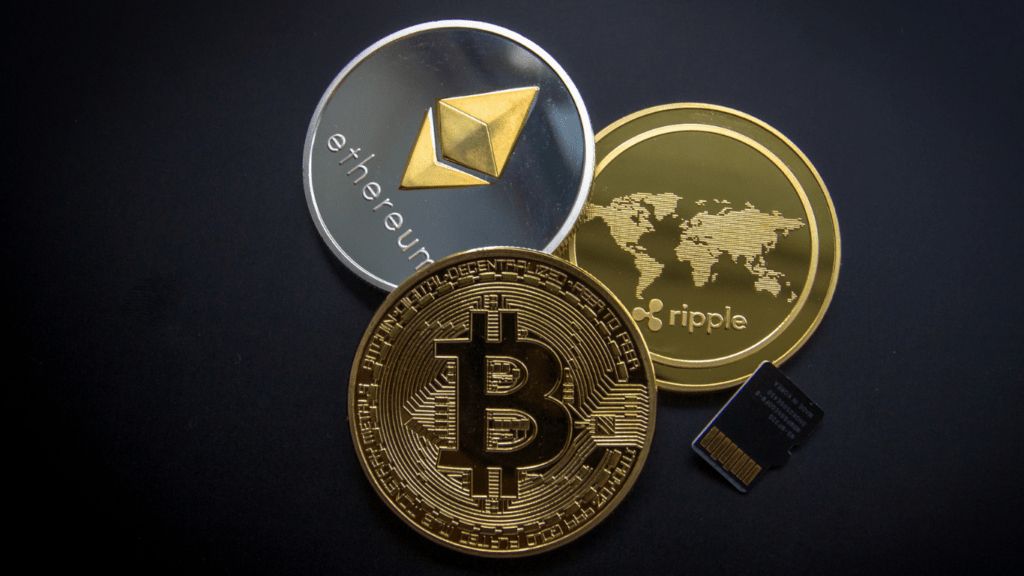The Intersection of Crypto and Gambling
The convergence of cryptocurrency and online gambling ushers in new opportunities and challenges. Blockchain casinos leverage digital currencies for transactions, ensuring secure and transparent operations. Players benefit from the anonymity cryptocurrencies offer, eliminating the need for traditional banking methods and their associated delays.
Smart contracts form the backbone of these platforms. They automatically execute terms of an agreement when predefined conditions are met, removing intermediaries. This automation enhances trust, as players can verify the fairness and outcomes of their bets independently.
Provably fair algorithms further reinforce trust. By using cryptographic hash functions, these algorithms allow players to confirm that game results haven’t been tampered with. This transparency has drawn more players to blockchain casinos, boosting their popularity.
The regulatory landscape for crypto gambling remains complex. While some jurisdictions embrace the innovation, others impose strict regulations or outright bans. Players and operators must navigate these varying legal frameworks to ensure compliance and avoid potential legal issues.
The intersection of crypto and gambling also brings financial advantages. Lower transaction fees, faster processing times, and global accessibility make blockchain casinos appealing for both operators and players. Digital currencies eliminate the need for currency conversion, reducing costs and simplifying transactions.
The fusion of blockchain technology with online gambling creates a more secure, transparent, and fair environment. While challenges exist, the benefits continue to drive the growth and adoption of blockchain casinos, transforming the landscape of the gambling industry.
Advantages of Blockchain Casinos
Blockchain casinos have transformed the online gambling landscape by offering unique benefits. These platforms attract users by combining cryptocurrency and secure, transparent technology.
Transparency and Fairness
Blockchain casinos prioritize transparent operations by leveraging distributed ledger technology. Every transaction and game outcome is recorded on the blockchain, creating an immutable and publicly accessible trail.
Provably fair algorithms, which allow players to verify the fairness of game results independently, enhance trust. Examples of such games include card games and slot machines, where each outcome is a direct result of cryptographic hash functions.
Security and Anonymity
Blockchain platforms integrate robust security measures, reducing the risk of hacking and fraud. Cryptographic techniques safeguard user data and funds, ensuring that sensitive information remains private.
Players enjoy enhanced anonymity, as blockchain casinos typically require only minimal personal information, unlike traditional platforms which mandate extensive identity verification. This level of privacy appeals to users concerned about data breaches.
Lower Fees and Faster Transactions
Blockchain technology enables lower transaction fees compared to traditional payment methods. Digital currencies facilitate direct and instant transfers between players and casinos without intermediary banks, thus reducing costs.
Bitcoin, Ethereum, and other cryptocurrencies allow for transactions that are processed in minutes rather than days, providing users with quick access to their winnings and deposits.
Popular Cryptocurrencies Used in Gambling
Blockchain casinos leverage various cryptocurrencies to offer players secure transactions and anonymity. Different digital currencies cater to different gambling needs.
Bitcoin
Bitcoin remains the most popular cryptocurrency in online gambling. With its large market cap and high liquidity, players trust Bitcoin for its stability and widespread acceptance. For example, major blockchain casinos like BitStarz and mBit support Bitcoin deposits and withdrawals. These casinos provide faster transactions and lower fees compared to traditional payment methods.
Ethereum
Ethereum stands out due to its smart contract capabilities. These contracts enable automated, trustworthy transactions without intermediaries. Casinos like FunFair and Edgeless use Ethereum’s blockchain for provably fair games. The speed and efficiency of Ethereum transactions also attract many gamblers, ensuring seamless gameplay and instant payouts.
Other Altcoins
Altcoins like Litecoin, Ripple, and Dash are gaining popularity in blockchain casinos. Litecoin offers faster block generation and transaction confirmation times, making it attractive for quick deposits and withdrawals.
Ripple’s low transaction fees and real-time cross-border payments appeal to international gamblers. Dash provides enhanced privacy features, enabling anonymous transactions. Examples of casinos accepting these altcoins include 1xBit and Stake.
Overall, the diverse range of cryptocurrencies in gambling allows players to choose options aligning with their preferences for speed, privacy, and transaction costs.
Notable Blockchain Casinos

Blockchain casinos are quickly becoming popular due to their innovative features and robust security. Several prominent blockchain casinos lead the way in this new frontier.
Features and Offerings
Notable blockchain casinos often highlight their exceptional features:
- BitStarz: Combines traditional games with blockchain transparency. Offers slots, table games, and live casino options. Accepts multiple cryptocurrencies, including Bitcoin and Ethereum.
- FortuneJack: Focuses on provably fair gaming. Supports eight cryptocurrencies like Litecoin and Dash. Includes sports betting and live dealer games.
- mBit Casino: Prioritizes anonymity. Provides a vast selection of games. Fast withdrawals with Bitcoin, Ethereum, and other digital currencies.
- BetChain: Offers exclusive bonuses for cryptocurrency users. Extensive library of slots and table games. Supports Ethereum and Bitcoin.
- Stake: Simple interface. Extensive variety of games and sports betting options. High transaction speed using Ripple and Bitcoin.
User Experience
User experience is a key factor for blockchain casinos:
- Intuitive Interfaces: Casinos like Stake and mBit Casino have user-friendly interfaces that simplify navigation. Easy access to games and account features improves the overall experience.
- Fast Transactions: BitStarz and FortuneJack leverage blockchain to facilitate instant deposits and withdrawals. Players appreciate avoiding delays common in traditional casinos.
- Security and Privacy: BetChain and mBit Casino prioritize privacy. Players can enjoy games anonymously, knowing their transactions are secure through advanced encryption.
- Provably Fair Games: FortuneJack promotes transparency with provably fair algorithms. Players can verify game outcomes, ensuring fairness.
- Customer Support: High-quality support is critical, and casinos like BitStarz excel in this area. 24/7 live chat assists players promptly, enhancing user satisfaction.
Regulatory Challenges
Blockchain casinos face significant regulatory challenges due to the decentralized nature of cryptocurrencies and varying international gambling laws. We’ll explore key aspects under legal considerations and international standards.
Legal Considerations
Regulatory frameworks for blockchain casinos differ widely across jurisdictions. Some countries maintain strict prohibitions on online gambling, pushing such platforms to operate offshore.
For example, China bans all forms of online gambling, including blockchain-based casinos, prompting operators to seek licenses in countries with more lenient regulations. In contrast, countries like Malta have established specific licensing regimes catering to blockchain casinos, ensuring compliance with anti-money laundering (AML) and know-your-customer (KYC) regulations.
International Standards
International standards present another layer of complexity. While the Financial Action Task Force (FATF) provides guidelines on virtual assets and related service providers, adherence varies by country. These standards aim to prevent illegal activities like money laundering and terrorism financing by enforcing robust AML and KYC practices.
For instance, blockchain casinos operating in the European Union must comply with the EU’s 5th Anti-Money Laundering Directive (AMLD5), mandating stringent KYC checks and reporting obligations. This situation underscores the difficulty of maintaining a unified regulatory approach, given the cross-border nature of cryptocurrencies and online gambling.
Future Trends in Blockchain Gambling
In blockchain gambling, future trends promise to reshape the industry further. These developments, driven by technological innovations and market growth, create new opportunities and challenges.
Technological Innovations
Technological innovations are set to transform blockchain gambling.
- Developers continue to enhance smart contracts, enabling more complex and customizable betting options.
- Artificial intelligence (AI) and machine learning algorithms integrate with blockchain platforms to provide personalized gambling experiences and improve fraud detection.
- Virtual reality (VR) and augmented reality (AR) technologies offer immersive casino environments, attracting a tech-savvy audience.
- Upgrades in scalability solutions like Layer 2 protocols ensure faster transaction processing and reduced network congestion. These advancements make the gambling experience more interactive and efficient.
Market Growth
Market growth in blockchain gambling is significant.
The market’s annual growth rate is projected at 10% through 2025, based on a study by Market Research Future.
- The number of blockchain casinos and users is rising steadily, driven by increased acceptance of cryptocurrencies like Bitcoin and Ethereum.
- Regions with lenient regulations, such as Malta and Gibraltar, become hubs for blockchain gambling operations.
- Noteworthy investments by venture capital firms signal confidence in the sector’s long-term viability.
- With mainstream acceptance of blockchain technology expanding, the blockchain gambling sector stands on the brink of substantial growth.
